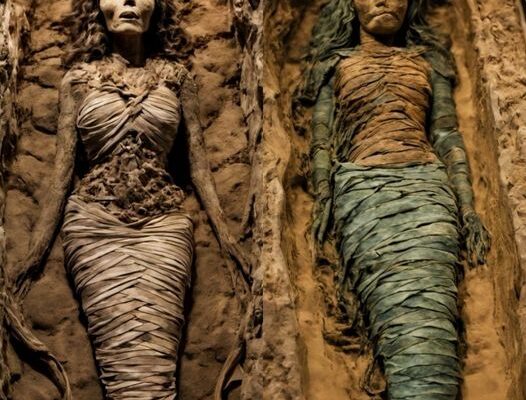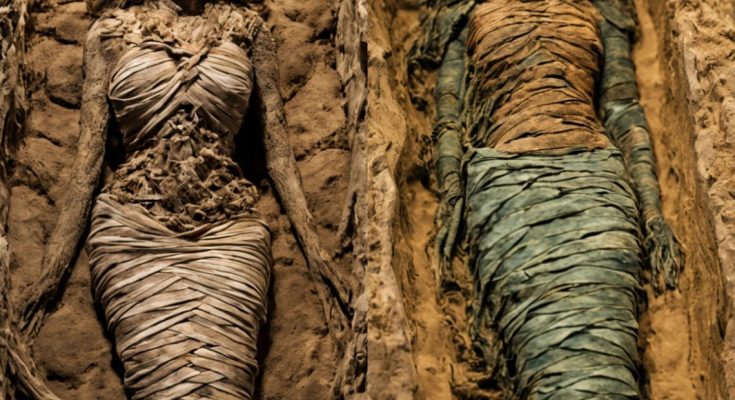“Two Centuries Later, The Real Mystery Of The Little Mermaid Mummy Is Finally Revealed”
Suddenly Appeared A Mermaid Mummy That Scared Scientists To Run Away.
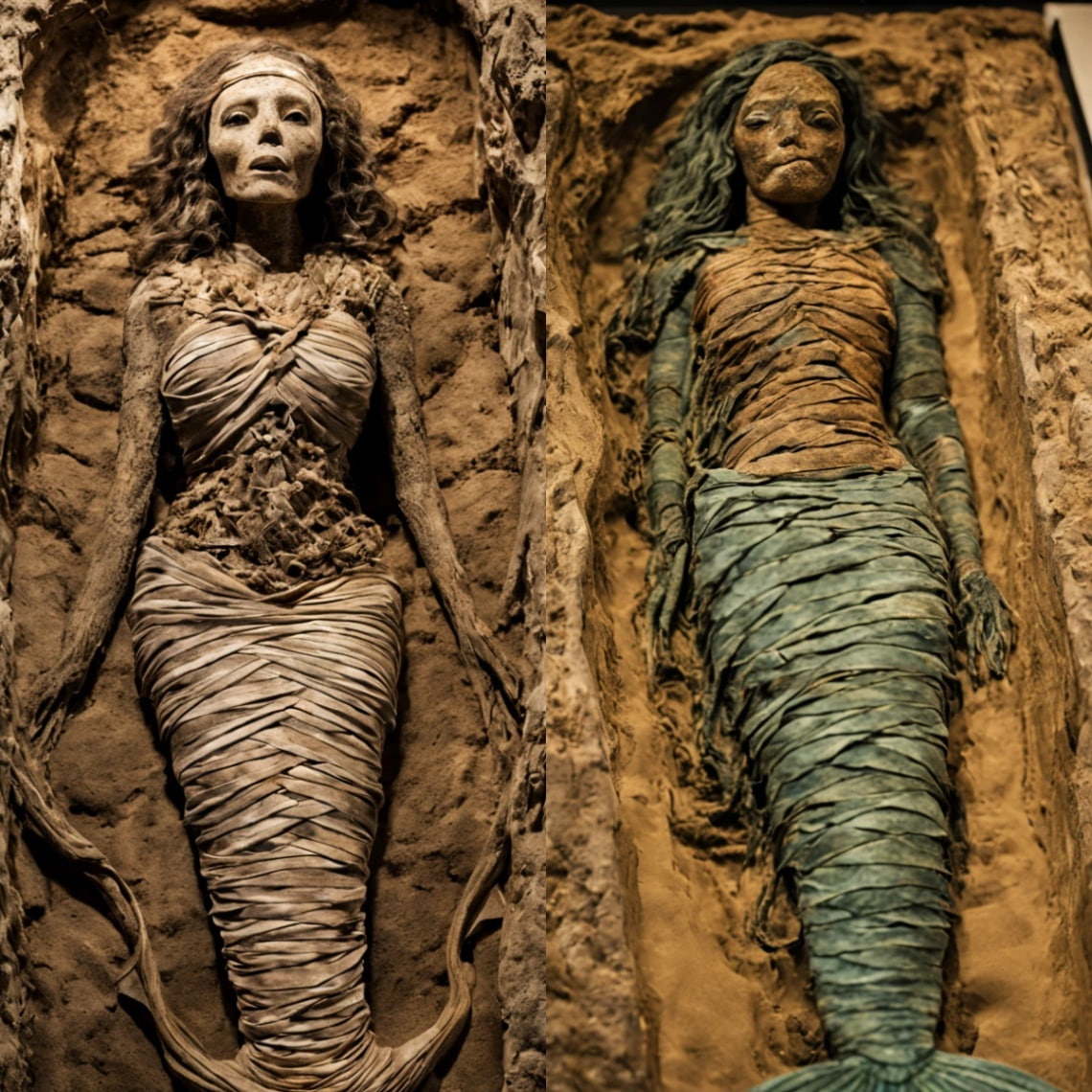
This is one well-traveled creature — in August 2006 alone, we received the photographs displayed above with messages claiming they depicted a mermaid (or a sea monster, or an extraterrestrial) found in Campeche (Mexico), Venda (South Africa), Cebu (the Philippines), and Swaziland.

The correct answer here, however, is “none of the above”: these are pictures of a mock-up created by artist Juan Cabana, offered for sale in a hoaxsterish online auction (no longer available) and advertised with an elaborate back story about the seller’s having encountered the “mermaid or sea monster” while “exploring desolate areas of Fort Desoto Beach at the southern end of St.
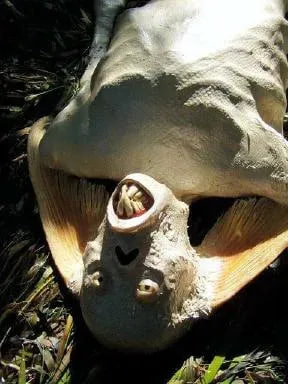
Petersburg, Florida.” (The same seller has offered other items of similarly dubious repute, such as an “Authentic Organic ALIEN Corpses UFO Time Traveler” (no longer available), which looked amazingly like a stringray carcass he had just bought from another seller on eBay.)
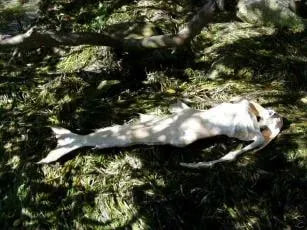
Descriptions of mermaids as gruesome, diminutive creatures with the upper bodies of very attractive females and the tails of fish are bound up to a staple of folklore and mythology for many centuries. Although the popular modern image has not always been the standard.

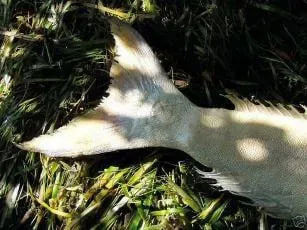
Mermaids have appeared in stories, works of art, travelogues, and their side shows. Although many such fabricated mermaids date from that era, the most famous example was the “Feejee Mermaid” (also known as the “Fiji Mermaid” or “FeeJee “Mermaid”), a grotesque creature allegedly “taken [by Japanese fishermen] off the Feejee Islands, and preserved in China” before being purchased by one Dr. J. Griffin, acting as agent of the Lyceum of Natural History in London, in 1842:

Those who are enamored with the supernatural, the unknown, and the patently weird may be familiar with famed showman P.T. Barnum’s Fiji mermaid. The disturbing fossilized creature, which Barnum claimed to have purchased from a Japanese fisherman in the mid-1840s, has been a popular sideshow attraction for nearly two centuries, with many claiming that the creature proves the existence of mermaids from folklore. Unfortunately for the true believers, a recent Yahoo Lifestyle write-up has debunked this claim, with scientists confirming the fossil is actually a Frankenstein amalgamation of a lizard, a monkey, and a fish.
The Fiji Mermaid Is Made Of A Lizard, Monkey, and Fish

Though the creature has been elaborately constructed well enough to fool ticket-buyers for longer than any of us have been alive, it seems hard to believe that nobody had confirmed this sooner. After all, once you get a good look at the Fiji mermaid after hearing this news, it becomes all you can see in the famed attraction. The head and torso of the reconstructed man-made monstrosity are from a small monkey grafted to the body of an ordinary fish, while the outstretched clawed fists protruding from the creature belong to a Komodo dragon.
Parts Were Preserved And Stitched Together
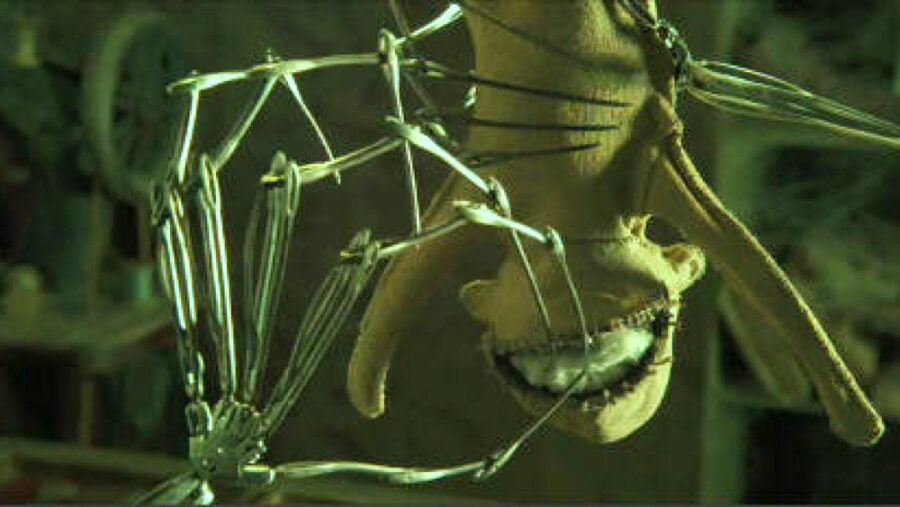
The research team responsible for dissecting the Fiji mermaid was headed by radiologist Joseph Kress, of Northern Kentucky University. Through a series of advanced autopsy processes, including X-rays and CT scans, Kress and his team were able to determine that the mermaid was stitched together like a human centipede, including a skeletal vertebrae of wooden stakes to keep the mutant posed and prevent deterioration.
Since the initial purchase of this creature in the mid-1800s, many copycats have been constructed by other sideshow attractions, including those made from paper-mâché and basic office supplies.
The Japanest Ningyo Theory Debunked
One Fiji mermaid said to be discovered in a Japanese temple just last year was recently debunked as well. The recently discovered creature turned out to be nothing more than convincingly crafted paper, cotton, and cloth, formed into a disturbing voodoo doll’s representation of the mythological Ningyo from Japanese folklore. Like mermaids from traditional sailor’s tales, Japanese Ningyo are said to be fish-like humanoids, representing longevity and wealth in Japanese culture.
Research Is Ongoing
While many audiences were quick to spot imperfections and inconsistencies in copycat Fiji mermaid creations throughout the years, the origins of the original P.T. Barnum model have baffled crowds since the exhibit’s inception. According to Kress and his team of scientists, researchers have planned additional tests designed to determine the exact species of fish, monkey, and lizard from which the creature is constructed, with plans to reach out to local zoos and aquariums to court animal expertise.
No Proof Of Mermaid Existence…Yet
Though this discovery seems to suggest that humanoid mermaids have not been discovered in any genuine capacity on Earth, scientific discoveries always have new and wonderful findings to offer. Those who feel let down by the deconstruction of the Fiji mermaid may be able to find solace in a number of recent discoveries such as the alien world hidden within the Earth’s mantle, or the recent discovery of 100,000-year-old mammoth bones.
